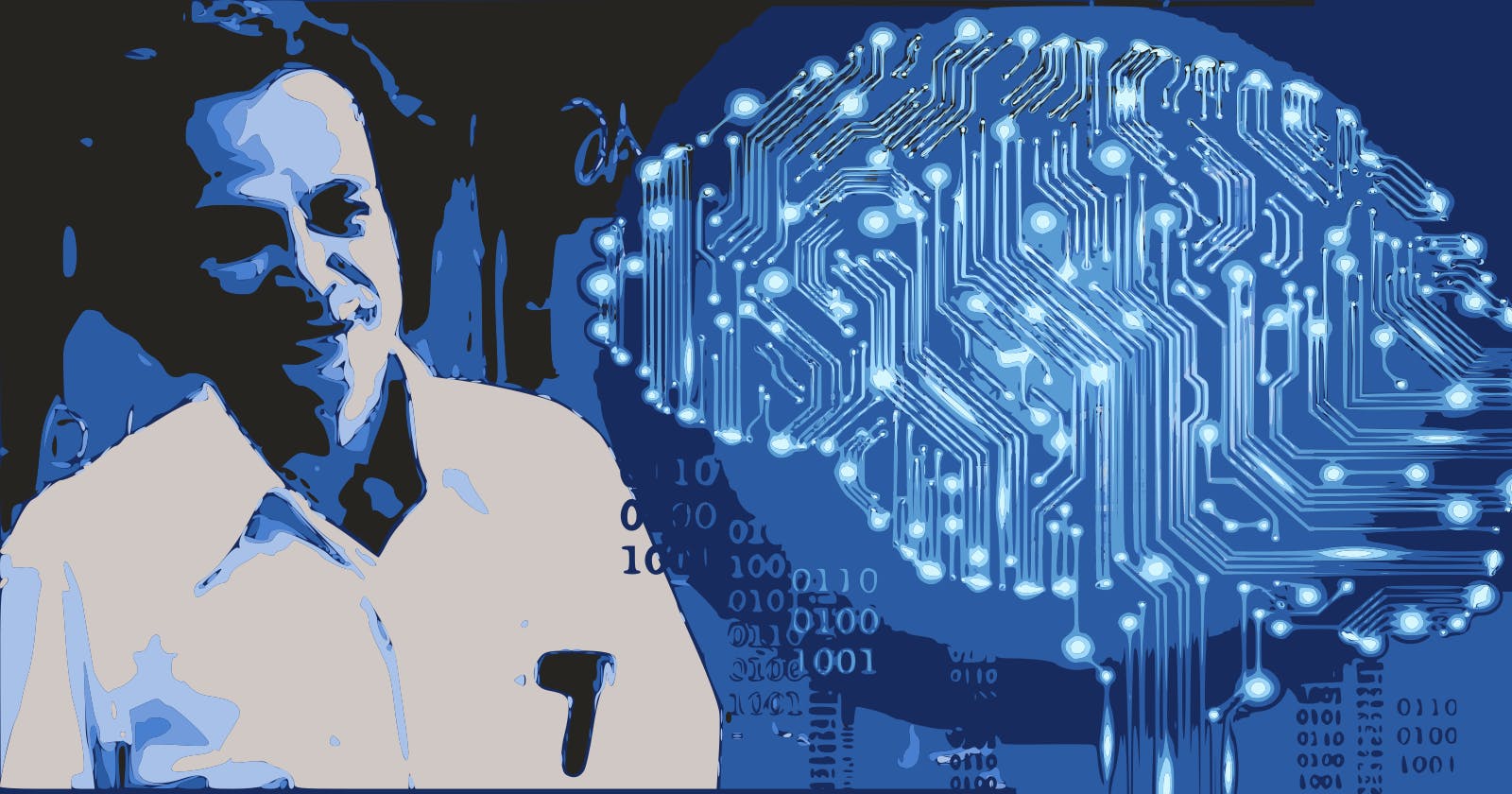You can’t learn AI and other reasons why you’re an idiot
Definitions won’t save you but maybe actions can
Reading publication after publication on how AI and Machine Learning could be used for Raman Spectroscopy, you find endless pre-processing methods, coupled with large variations of classification tools, not to mention combining all of these into building something akin to being Artificially Intelligent. It seems overwhelming, to remember these definitions and processes [1]. It was only a few years ago that was I first introduced to a programming language such as Python and MATLAB, and now —since the employment chain and the advancing society demands it…I have to build a brain!
In Physics, it's very common to reduce the problem to its fundamental components in the micro-dimension, and then extend them over an integral or iterations up into the macro-dimension. When I have been given tools such as PyTorch or VSCode, it’s of no surprise that an instinct within me refuses to exploit these tools to their fullest capabilities without understanding the (mathematical) fundamentals of how they actually work.
The biggest problem I’ve found with understanding any discipline is that the more and more you understand something, the more your knowledge begins to dwell on the fringes of the topic. Those fringes, which are the regions of the unknown, are incredibly frustrating for someone who is highly conscientious and obsessed with knowing the exact details of everything.
I experienced this a lot during my undergrad when a professor would ask “What is this?” and a student would answer “This is made up of this (which they don’t understand) and this (which they also have no clue but that’s what the dictionary says).” As long as the student says the correct words, in the correct order based on the correct definition, then the student is correct. In other words, it seemed that rewards were given to explain something based on its surface components instead of its more routed and fundamental components. However, in any discipline — especially the sciences — none of these long recitations of definitions mean anything without implementing them into action.
I’m reminded of a story of the late Richard Feynman, who sourced much of his eccentricity from being so practical about the sciences. Feynman went to Brazil to rejuvenate the Physics education system in universities. On arriving, he discovered that the whole system of the sciences (from biology to chemistry and even mathematics) was also in the same degree of degradation.
Brazilian Physics students, up to this point, had only ever memorised definitions, numbers, physical constants (such as Pi, G, g, c etc.) equations, and proofs, but failed completely in solving problems that were new to them. On one occasion, when he was explaining polarisation lenses to his students, through the classroom window was a view of the sun shining on the South Atlantic Ocean. The sun rays, Feynman explained, would reflect off the surface of the ocean into the classroom. Holding a polarising filter up to the class, he asked “How can we test that this reflected light is indeed polarised?”
While they did know the definition of polarization:
The light is polarized perpendicular to the plane of reflection.
And they did know the definition of Brewster’s Angle:
Brewster’s Angle is the angle at which light reflected from a medium with an index of refraction is completely polarized.
None of them, staring at Feynman’s polarisation filter, and with the rays of light coming from the ocean, could explain how to solve this problem that was right in front of their eyes.
"Everything was entirely memorized, yet nothing had been translated into meaningful words.
- Richard Feynman, from Surely You're Joking, Mr Feynman (1985)
In other words, nothing had been translated into meaningful action. Feynman gave many lectures to students in Brazil, typically on the basic fundamentals of each problem such that his students could execute the methods for different problems. Once he realised that none of his students had ever actually solved problems themselves, he concluded that:
“…no science is being taught in Brazil!” [2]
I took my impression of Feynman’s philosophy extremely seriously in my undergraduate Physics. I judged and doubted the definitions. I am sceptical of the man that reads the dictionary, the one who just computes words and more words like a cold robotic machine. It’s anti-Science and anti-Western to read words without seeking meaning by translating those words into actions. (I’m sure you know someone who stops a conversation, and brings the entire flow of a meaningful exchange to a complete and abrupt halt, to look at the definition of a word)
This “ground-up” philosophy went as far as being sceptical of the value of Pi. How can you actually know the value of pi? From a definition? Can you really trust them? Hence, I derived it myself by frantically drawing larger and larger circles, using computational methods from Leibniz’s Formula to Monte Carlo iterations.
But I think I still fully missed the point Feynman was trying to make. What I thought was an extension of Feynman’s philosophy was actually its antithesis and would cause me lots of trouble later down the line.

"You can know the name of a bird in all the languages of the world, but when you're finished, you'll know absolutely nothing whatever about the bird... So let's look at the bird and see what it's doing — that's what counts. I learned very early the difference between knowing the name of something and knowing something."
-Richard Feynman
Although there is utility in extracting what Feynman laid out during the 1960s, I missed the points Feynman was trying to make. His most famous book The Feynman Lectures on Physics (1963), is read by almost every renowned Physics professor in the Western world today. The key utility taken from this is that someone else laid the foundations so that you don’t have to start all over again.
Feynman grew up in a very different world. Computers were just beginning to emerge and the further reduction of liability on companies made the sphere of trust expand wider and wider as technology was advancing the public market. Feynman grew up when you could open the bonnet of your car, tweak the engine belt, screw up a few nuts and bolts and hook up the battery. Today, what you see when you open up your car is a securely bolted, restricted access machine where you don’t have the slightest clue what it’s supposed to be (or do except on a surface level such as ‘drive’ or ‘take you to work’). What controls it isn’t nuts, bolts, gears or screws, but information: ran on complex software which would take you years of computer science experience to understand it. It’s hidden by wires and programming, microelectronics, locked away such that even the highest perspicacity to keep up with the never-ending updates is an extreme challenge.
Once you get to start building the software, you’re only writing a tiny piece of the collective machine which is far too big for you to understand. Today, building something from the ground up, even an understanding of something, is going to be nearly impossible without redistributing tasks.
While still maintaining opposition to this, in business I had an idea to start a technology company. Naturally, I was obsessed with starting everything from scratch, by myself, from the ground up. This even included 3D modelling an entire set of critical components, to which my colleague suggested outsourcing this to someone else — instead of spending hours and hours re-learning how to 3D model. The same colleague, when discussing the designs of the computer chips, said “Do you also want to go and mine the silicon yourself?” To my frustration and the cripple of my pride, I knew he was right.
If you live so that life can be unbelievably challenging, I have no doubt you've had so many disappointments where things just don’t work. As a result of your trauma through that experience, it rewires yourself such that you develop habits and mechanisms so that it doesn’t happen again. Things break. Wires short-circuit. Things overheat or crack. People leave. Relationships fall. And the natural thing to say is “Well if I just knew how the bloody thing worked I could fix it, or even have prevented it from breaking in the first place.” In the most likely case, you develop habits which grow so powerful that they even stunt any further growth of your own, even more monstrous than the initial trauma itself. It will continually clench you to a paranoid and anxious state, preventing any growth and stopping any steps forward.
What is a way forward out of the reductionist hell? What is a way out of pride and knowledge of everything? What can protect you when you have no ground to stand on?
You have to have trust and faith, because that will be the thing which will guard you into the unknown, every day. It’s not worth it to be paranoid, or anxious on a level that’s more than necessary. It’s not worth it to know and understand absolutely everything on your own.
We are using tools we can not fully understand. If it really comes down to organising the hierarchy of priorities in your life, you don’t have to fully understand it either. To understand AI or Machine Learning, stop being an idiot from the ground-up and just start from where you are today: with tools at hand, with faith, ready to walk into the unknown.
References
'A review of artificial intelligence methods combined with Raman spectroscopy to identify the composition of substances' (July 2021), Liangrui Pan et al, Prince of Songkla University, Songkhla, Thailand
Richard Feynman, 'Surely You're Joking Mr Feynman' (1985)
